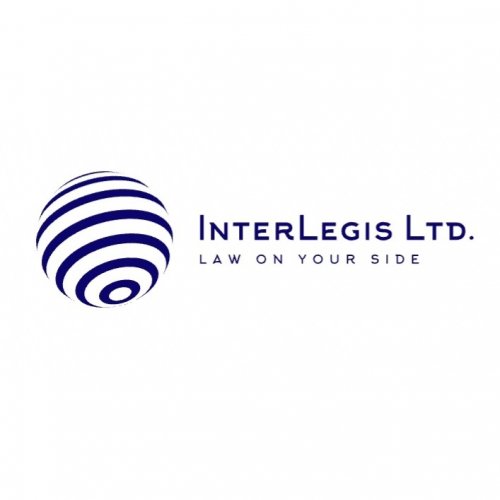Best E-commerce & Internet Law Lawyers in Varna
Share your needs with us, get contacted by law firms.
Free. Takes 2 min.
List of the best lawyers in Varna, Bulgaria
About E-commerce & Internet Law in Varna, Bulgaria
E-commerce & Internet Law in Varna, Bulgaria, is a rapidly evolving field that encompasses various legal aspects related to online business activities. This includes regulations around online contracts, digital transactions, consumer protection, data privacy, intellectual property rights, and cybersecurity. Being a member of the European Union, Bulgaria aligns its laws with EU directives, aiming to create a balanced and secure environment for both businesses and consumers engaging in e-commerce. Varna, as a significant economic hub on the Black Sea coast, sees a thriving scene of digital enterprises, thus making the understanding of these laws crucial for any business seeking success in this arena.
Why You May Need a Lawyer
Engaging with E-commerce & Internet Law can be complex, given the multifaceted nature of online transactions and digital interactions. You may need a lawyer in several common scenarios, such as:
- Setting up an e-commerce business and requiring guidance on legal compliance.
- Facing disputes related to online contracts or transactions.
- Ensuring compliance with consumer protection regulations and avoiding penalties.
- Handling breaches of data privacy or dealing with cybersecurity issues.
- Protecting intellectual property rights, such as trademarks and copyrights, in the digital realm.
- Responding to legal notices or litigations involving online business activities.
Local Laws Overview
The landscape of E-commerce & Internet Law in Varna, Bulgaria is influenced heavily by EU regulations, alongside local legislative frameworks. Key aspects include:
- Consumer Protection: Strict regulations ensure that consumer rights are respected, including obligations for clear information and right to withdrawal.
- Data Protection: The General Data Protection Regulation (GDPR) mandates businesses to ensure personal data is handled responsibly.
- Electronic Contracts and Signatures: Bulgarian law recognizes electronic contracts and signatures as legally valid, provided they meet certain criteria.
- Intellectual Property: Protects digital assets and content, aligning with EU standards for copyrights, trademarks, and patents.
- Cybersecurity: Businesses are obligated to proactively manage cybersecurity risks to protect information integrity and confidentiality.
Frequently Asked Questions
What constitutes an e-commerce business under Bulgarian law?
An e-commerce business is defined as any commercial activity conducted through electronic means, primarily the internet, which includes the sale of goods, services, or digital content.
Do I need to register my e-commerce business in Bulgaria?
Yes, all businesses, including online enterprises, must be registered in the Bulgarian Commercial Register and comply with corporate regulations.
What are the key consumer protection laws affecting e-commerce in Bulgaria?
Laws such as the Consumer Protection Act transposing EU directives require clear information disclosure, fair contract terms, and allow for consumer rights like the right to withdrawal within specified periods.
How does GDPR impact my online business in Bulgaria?
GDPR imposes significant responsibilities on businesses to secure personal data, providing clear policies, obtaining consent, and ensuring data subjects' rights are upheld.
Can contracts be signed electronically in Bulgaria?
Yes, electronic contracts and signatures are recognized by Bulgarian law, as long as they meet the requirements set out under eIDAS Regulation.
What do I need to know about VAT in e-commerce transactions in Bulgaria?
VAT is applicable to goods and services sold online, subject to local regulations. Businesses must register for VAT if their activities exceed certain turnover thresholds.
How can I protect my intellectual property online?
Intellectual property rights such as copyrights and trademarks should be registered with the relevant Bulgarian or EU offices, and you can enforce these in cases of infringement.
What are the legal requirements for online advertising in Bulgaria?
Online advertisements must be truthful and comply with both Bulgarian advertising laws and EU directives to avoid misleading consumers.
How are data breaches handled in Bulgaria?
In the event of a data breach, businesses must notify the Commission for Personal Data Protection and impacted users within specified timeframes according to GDPR.
Do e-commerce platforms have specific regulations in Bulgaria?
Platforms must ensure compliance with regulations related to hosting content, responsibility for user-generated content, and providing a marketplace environment that adheres to consumer protection laws.
Additional Resources
For more assistance, you can contact the following organizations:
- Bulgarian Commission for Consumer Protection: Offering guidance and resolving consumer disputes related to e-commerce.
- Commission for Personal Data Protection: Providing resources and assistance for GDPR compliance and data protection issues.
- Bulgarian Chamber of Commerce and Industry: A resource for business registration and legal compliance support.
- European Consumer Centre Bulgaria: Assisting with cross-border consumer issues within the EU.
Next Steps
If you need legal assistance in E-commerce & Internet Law in Varna, Bulgaria, consider the following steps:
- Identify your specific legal needs and challenges within your e-commerce activities.
- Consult with a legal expert specializing in E-commerce & Internet Law to gain insights and potential solutions.
- Consider reaching out to local law firms with expertise in digital law to guide you through compliance and legal processes.
- Attend seminars or workshops on e-commerce regulations to further your understanding and stay updated with the latest legal changes.
- Always ensure that legal documentation, such as terms and conditions, privacy policies, and contracts, are reviewed and approved by a qualified legal professional.
Lawzana helps you find the best lawyers and law firms in Varna through a curated and pre-screened list of qualified legal professionals. Our platform offers rankings and detailed profiles of attorneys and law firms, allowing you to compare based on practice areas, including E-commerce & Internet Law, experience, and client feedback.
Each profile includes a description of the firm's areas of practice, client reviews, team members and partners, year of establishment, spoken languages, office locations, contact information, social media presence, and any published articles or resources. Most firms on our platform speak English and are experienced in both local and international legal matters.
Get a quote from top-rated law firms in Varna, Bulgaria — quickly, securely, and without unnecessary hassle.
Disclaimer:
The information provided on this page is for general informational purposes only and does not constitute legal advice. While we strive to ensure the accuracy and relevance of the content, legal information may change over time, and interpretations of the law can vary. You should always consult with a qualified legal professional for advice specific to your situation.
We disclaim all liability for actions taken or not taken based on the content of this page. If you believe any information is incorrect or outdated, please contact us, and we will review and update it where appropriate.









